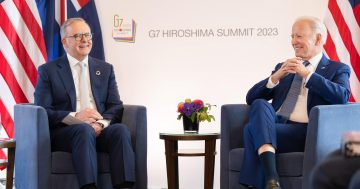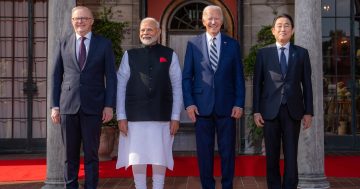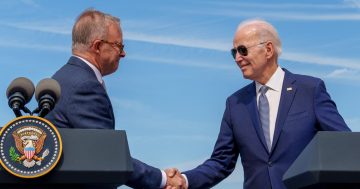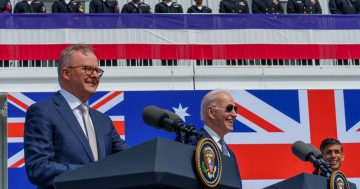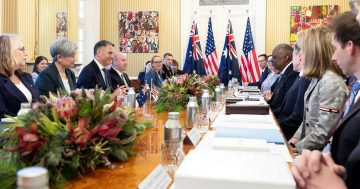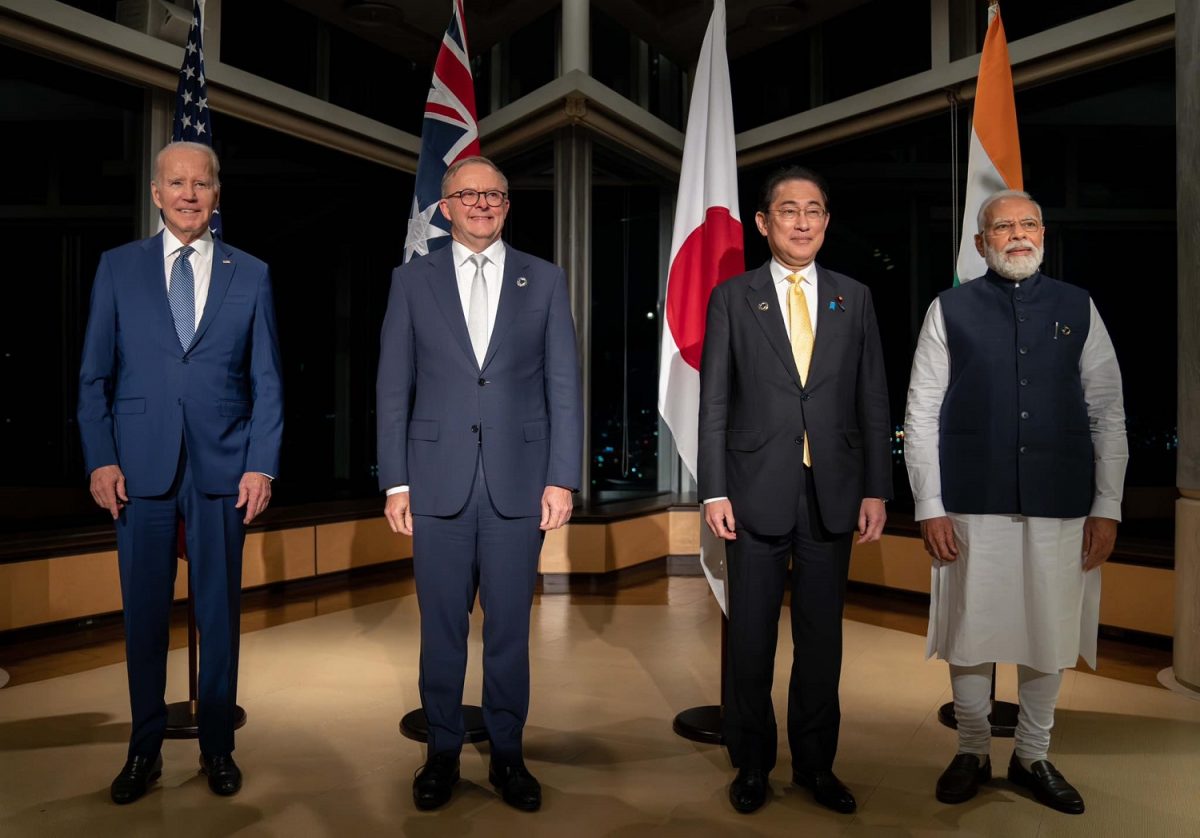
Looking less lifelike than a display at Madame Tussauds, the four leaders of the Quad pose for a photo-op in Hiroshima on Saturday. Photo: Facebook
Following the cancellation of US President Joe Biden’s visit to Australia for bilateral meetings and an annual gathering of the Quad grouping, the four members were able to meet on the sidelines of last weekend’s G7 summit in Japan to reaffirm the grouping’s commitment to a free and open Indo-Pacific, and to take action on climate change.
Australian Prime Minister Anthony Albanese, his Indian counterpart Narendra Modi, Japan’s Prime Minister Kishida Fumio and President Biden held their third in-person Quad Leaders’ Summit – albeit in an abridged form – in Hiroshima on Saturday.
The Australian leg of President Biden’s tour, during which the full summit was supposed to be held in Sydney, was cancelled due to ongoing domestic negotiations over the US debt ceiling.
While most of the legwork had undoubtedly already been done by ministerial staff and diplomats, the leaders obviously felt it important enough to meet in person, if only for little more than a brief photo op. The leaders also released a 32-point vision statement that outlined the Quad’s ambitions for the region.
Key among these points was their reaffirmation of a commitment to a Pacific region that is inclusive and resilient.
The statement recognised the changing geopolitical circumstances in the region but noted, “all countries have a role in contributing to regional peace, stability, and prosperity, as well as upholding international law, including the principles of sovereignty and territorial integrity, and the rules-based international order”.
In a not-so-subtle swipe at China, it said: “We seek a region where no country dominates and no country is dominated – one where all countries are free from coercion, and can exercise their agency to determine their futures.”
Part of that agency involves the Quad’s reaffirmation of its “consistent and unwavering support” for the Association of South-East Asian Nations (ASEAN) and that it is committed to ensuring its work is aligned with “ASEAN’s principles and priorities”.
That commitment also extends to organisations like the Pacific Islands Forum (PIF) and the Indian Ocean Rim Association (IORA).
Regional institutions, the Quad says, “have served the region well over many years”. It said it would listen to and be guided by priorities including “climate action, ocean health, resilient infrastructure, maritime security and financial integrity”.
Indeed, the need to tackle climate change was a recurring theme throughout the statement, with the leaders stressing the “urgent need to address the climate crisis”, which it says “poses tremendous environmental, social, and economic challenges for our region”.
The statement said it is dedicated to taking significant action on climate change, both individually and collectively, and will work to support climate mitigation, adaptation, and resilience efforts in alignment with the United Nations Framework Convention on Climate Change and the Paris Agreement, as well as the aforementioned regional forums.
“We will continue to collaborate on green shipping and ports, disaster risk management, exchanging climate information, and capacity building support for Article 6 implementation of the Paris Agreement,” the statement read.
“Under the Climate Information Services Initiative, we plan to coordinate our collective resources to support early warning systems in the Indo-Pacific, including through the Pacific-led Weather Ready Pacific initiative and the longstanding leadership of the Pacific Meteorological Council.”
But while the statement was strong on affirmations and recognitions, there was little detail on how these would be turned into substantive and measurable change, nor when.
“Today, we are issuing a Statement of Principles on Clean Energy Supply Chains in the Indo-Pacific, which provide a basis for our engagement in the region on clean energy supply chain development,” it said.
“The principles are designed to promote diverse, secure, transparent and resilient clean energy supply chains and support a sustainable, and inclusive clean energy transition.
“Under the Quad Climate Change Adaptation and Mitigation Package (Q-CHAMP), launched in 2022, we continue to work together and with Indo-Pacific partners to enhance climate and clean energy cooperation as well as promote adaptation and resilience.
“We will work together to seek meaningful outcomes on climate action and the clean economy transition in the Indo-Pacific Economic Framework for Prosperity (IPEF).”
In other words, lots of “working towards”, “engagement”, and “principles”, but no tangible actions.
Much of the rest of the statement focussed on economic issues and opportunities, health issues following the COVID-19 pandemic and security issues around cyber, maritime security and North Korea.












